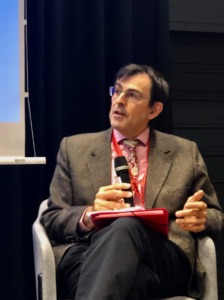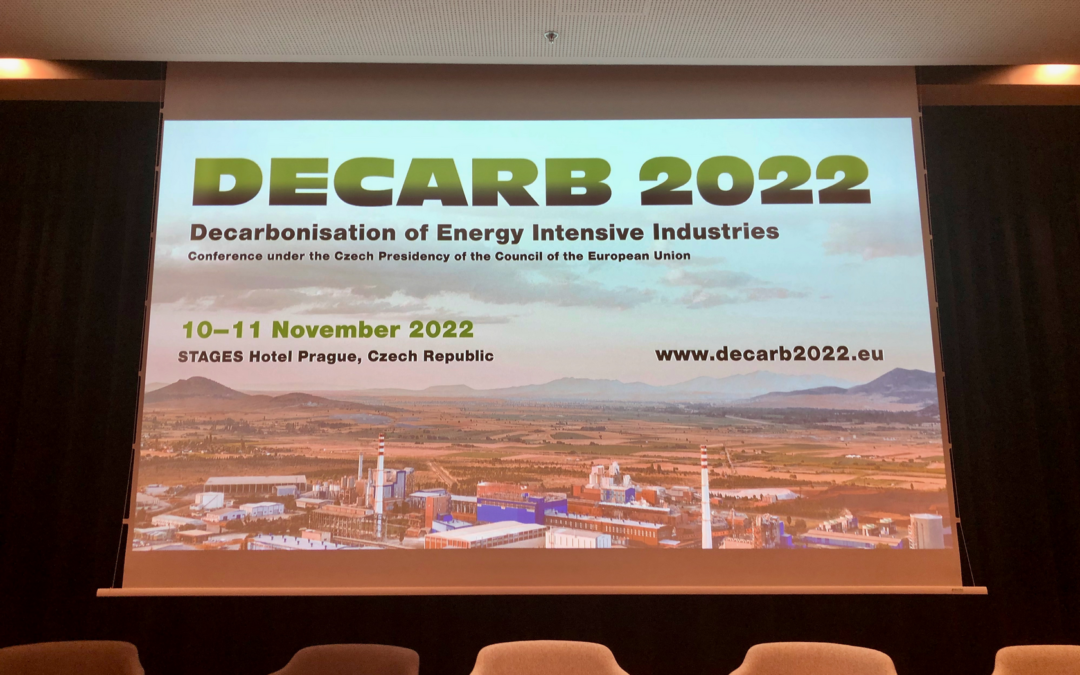The conference Decarbonisation of Energy Intensive Industries: Challenges, Opportunities and Solutions took place from 10 to 11 November 2022 at Hotel STAGES in Prague as a part of the Czech Presidency of the Council of the European Union. The conference was intended for representatives of energy intensive companies, policymakers and experts to examine the policy framework necessary to meet EU’s goal of becoming the first climate-neutral continent by 2050.
The debate also centred in sustainable and feasible options for decarbonisation and green transition, e.g. using CO2 exhausts as input raw material for synthetic fuels and chemicals for industrial applications. In this context, SUNERGY Coordinator Prof. Bert Weckhuysen and deputy coordinator Dr. Frédéeric Chandezon, presented SUNER-C project (CSA, GA nr. 101058481). The aim was to present the SUNERGY vision on present and future solutions to reduce CO2 emissions in front of the european industrial and societal stakeholders.
SUNERGY aims to transform abundantly available feedstock molecules, mainly CO2, H2O, and N2, with solar energy into sustainable fuels, materials, and chemicals. These so-called solar fuels and chemicals are analogous to their fossil counterparts and can be incorporated into the existing energy value chains with minimal adjustments to the existing infrastructure. The European Union is clear to stay on a steady path to climate neutrality through its plan against greenhouse emissions, the ‘Fit for 55’ package and the EU Green Deal. Unless deep cuts are made in carbon dioxide (CO2) and other greenhouse gas emissions, it will be very challenging to reach that goal. For this reason, SUNERGY Community approaches to use energy carriers to supplement renewable energy based on photovoltaics and wind energy to supply fuels to sectors and processes difficult to electrify and to create non-fossil carbon feedstock for the chemical industry.
The deputy coordinator of the project, Dr. Frédéric Chandezon, European policy officer at IRIG institute (CEA Grenoble), stated:
“The SUNER-C European project will be the cornerstone to implement and validate the concept of an action coordinated at a European scale to accelerate the development of solar fuels and chemicals as a ramp-up phase from 2022 to 2025, and prepare the path to a large scale R&I initiative after 2025. As the contribution of the community is essential, many actions of the project will be done together with all stakeholders and with the European Commission and the Member States during the 3 years that the project will last.”


